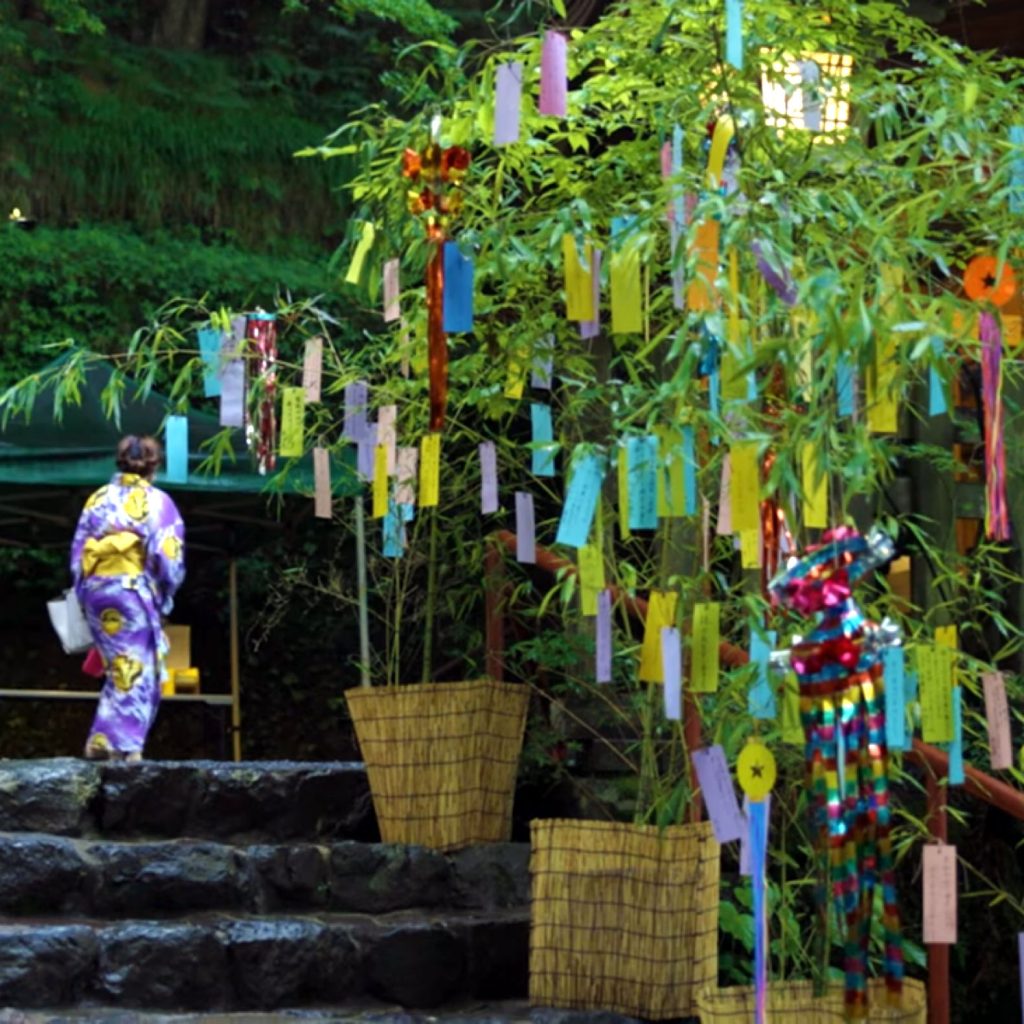
Orihime (Vega) and Hikoboshi (Altair), who were deeply in love, neglected their assigned tasks. Angry with their behavior, the gods of the heavens separated the two lovers. They were given only one day a year to meet, known as the ‘Tanabata’ or ‘Star Festival.’ Orihime and Hikoboshi started working hard, looking forward to the night of Tanabata. In Japan, in accordance with this Tanabata legend, it is a custom to write wishes on colorful strips of paper called ‘tanzaku’ and hang them on bamboo branches on the night of July 7th. It is believed that these wishes are entrusted to the gods. In ancient China, the Tanabata festival was considered a ‘Water God Festival’ for praying for rain. At the Kibune Shrine, dedicated to the water deity Takaokami God, the Tanabata festival is held along with the ‘Mizu Matsuri’ or ‘Water Festival’ on July 7th each year. In line with this, from July 1st to August 15th, when the Bon Festival ends, people light up Tanabata decorations after dusk and offer their ‘prayers’ and ‘gratitude’ during those days.
愛に溺れ、任された仕事を怠けてしまった織姫と彦星。それに怒った天の神様は愛し合う二人を引き離します。そして2人に年に1度だけ会うことのできる日「七夕」を与えました。織姫と彦星は七夕の夜を楽しみに仕事に励むようになったとさ。そんな七夕伝説にちなんで、日本では7月7日の夜に願いごとを書いた短冊を笹の葉に吊るして、願いを神様に託すという慣わしがあります。七夕神事は古代中国では、雨乞いの「水神祭」であったと考えられていることから、水を司る神、高龗神(たかおかみのかみ)を祀る貴船神社では、毎年7月7日に雨乞神事「水まつり」とともに「七夕神事」が執り行われます。それに合わせて、毎年7月1日からお盆が終わる8月15日まで、夕暮れ以降七夕笹飾りをライトアップして、「祈り」と「感謝」を捧げる日々をおくります。
